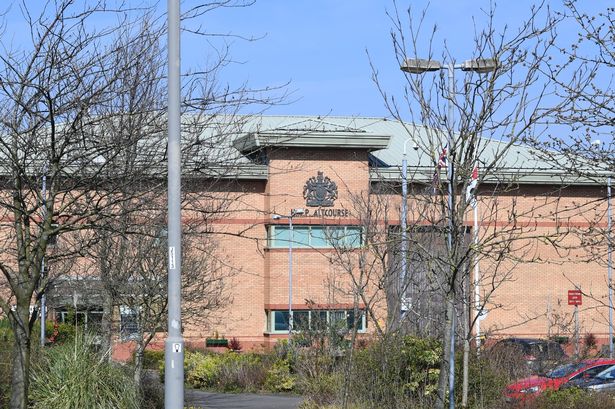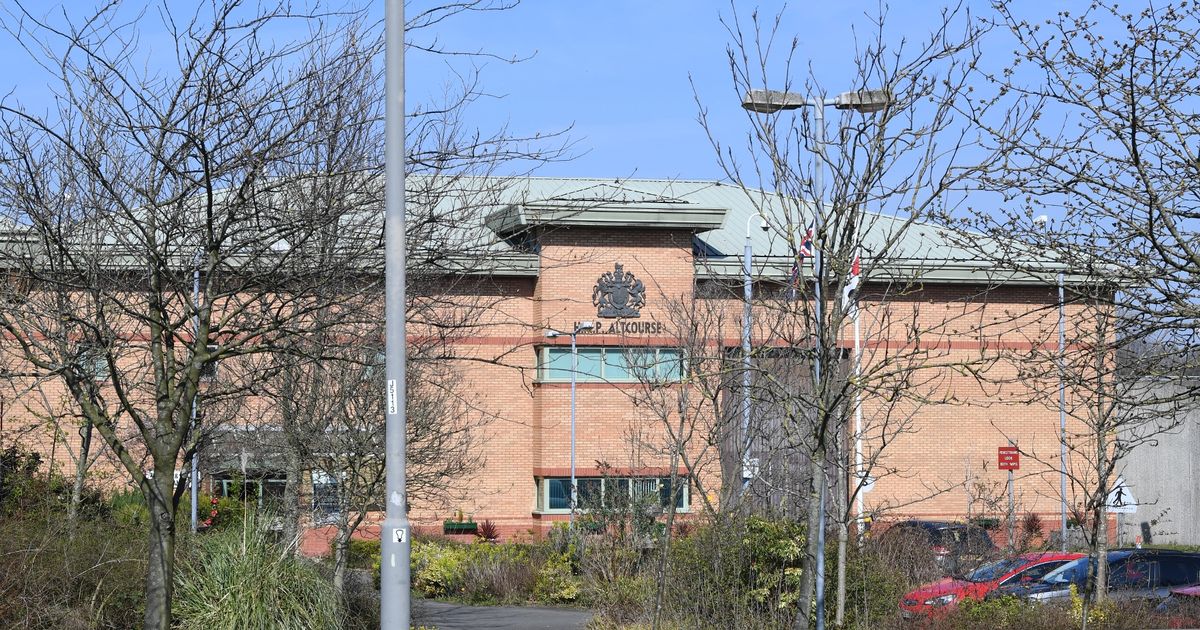Anthony Kennedy, 44, was found unresponsive in his cell HMP Altcourse, Liverpool(Image: Liverpool Echo)
HMP Altcourse, Liverpool(Image: Liverpool Echo)
A HMP Altcourse prisoner was found unresponsive in his cell hours after telling staff he was “too tired to collect his medication and felt really ill”. Anthony Kennedy, 44, was remanded to prison on February 3 2023, and died just nine days later on February 12.
A recently published report by the Prisons and Probation Ombudsman said Mr Kennedy had come to the prison with a history of self-harm and substance misuse. He refused to engage with healthcare staff, and was placed on a suicide and self-harm support procedure, known as ACCT, with observations twice an hour.
He was also prescribed methadone to lessen his withdrawal symptoms after testing positive for several drugs.
He continued to refuse to engage with healthcare staff the following day, February 4, and they were unable to carry out an initial mental health assessment. On February 5 he complained of a stomach ache and asked to see a doctor, but would not let nurses take his clinical observations. He continued to refuse a health check.
On February 6 he was prescribed medication for his stomach ache. He continued to refuse to engage with the mental health team, and so was taken off ACCT on February 7.
But he changed his mind the following day and had a meeting with the mental health team, where he was was described as “upbeat and chatty throughout”.
The report read: “He said that he was much happier following a wing move, and as there were no other issues of concern, staff decided to stop the twice hourly checks but continue with the conversations.
“Mr Kennedy did not raise any concerns with staff over the next few days. CCTV footage indicated that Mr Kennedy’s cell door was often open, with plenty of prisoners coming and going, although nothing that raised any suspicions.”
A substance misuse service worker visited on February 10, but Mr Kennedy would not engage with him and the meeting was rescheduled for the following week.
On the morning of February 11, an officer wrote in Mr Kennedy’s ACCT document that he might have COVID-19 and so he had stayed in his cell. A further entry later that day said that Mr Kennedy told an officer that he had taken a COVID-19 test, and the officer said that he should have another test the next day.
No record was made of the test results, but “it is assumed that it was negative since he was advised to re-test the next day”.
The report continued: “When Mr Kennedy was unlocked by a prison officer on the morning of 12 February, he said that he was too tired to collect his medication and felt really ill. The officer said that Mr Kennedy should do a COVID-19 test later.
“Shortly before midday, that officer asked another officer to visit Mr Kennedy to see if he now wanted to collect his medication. When the officer arrived outside Mr Kennedy’s cell, a prisoner (who’s name was not recorded) told them that he was not well but was refusing to take a COVID-19 test. Therefore, the officer decided to get a COVID-19 test kit before returning to Mr Kennedy with another officer who she asked to assist in getting him to take the test.
“When the officers went into the cell, they found Mr Kennedy unresponsive, and they could not feel a pulse. They radioed a code blue (a medical emergency radio code), and officers began attempts to resuscitate Mr Kennedy. Healthcare staff took over when they arrived shortly afterwards.”
An ambulance crew arrived at 12.12pm, and Mr Kennedy was resuscitated. However, his heart stopped again in the ambulance. Further attempts were made to revive him, but he died in hospital at 1.26pm.
A post-mortem report concluded that Mr Kennedy died from the combined effects of morbid obesity, cardiomegaly (an enlarged heart), pneumonia, pulmonary emphysema, and mixed drug toxicity.
The report said: “Although none of the prescription drugs were at a significantly elevated level, the pathologist noted that that these drugs may have had a depressant effect on Mr Kennedy’s breathing and central nervous system. There were also unknown consequences of this unauthorised combination of medication.”
The PPO report concluded: “The clinical reviewer said that the clinical care that Mr Kennedy received was of a good standard and was equivalent to that which he could have expected to receive in the wider community. Mr Kennedy was mostly non-compliant with substance misuse and healthcare staff, but they continued to attempt to engage with him while he was at Altcourse.
“Mr Kennedy’s family asked the PPO what staff checks were made on him as they were concerned he had not been looked after appropriately. Mr Kennedy was supported and monitored by staff under ACCT procedures for the whole time he was at Altcourse. Staff also tried to assist Mr Kennedy in other ways as previously detailed, such as by offering to write to his bank.
“Although Mr Kennedy often did not wish to engage with staff, they continued to monitor him throughout his time at the prison. We are satisfied that he was offered an appropriate level of care by prison and healthcare staff.”
The Ministry of Justice was approached for comment.
